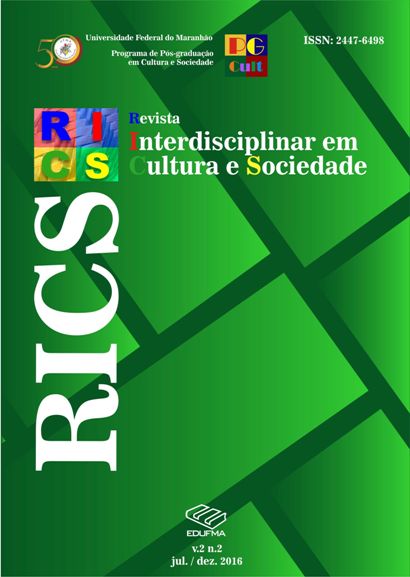CONTRIBUIÇÃO DA PSICANÁLISE ÀS PRÁTICAS EDUCATIVAS
Palavras-chave:
Psicanálise, Ensino, Transmissão, Desejo, SaberResumo
Propõe-se uma comunicação que permita refletir sobre que consequências traz para o saber universitário o fato do discurso psicanalítico ocupar atualmente, nas instituições de ensino superior, um espaço de discussão com o discurso universitário. Visa-se concretizar uma reflexão teórica por meio de uma pesquisa bibliográfica dos registros disponíveis em livros e artigos, onde o pesquisador se propõe não apenas a reproduzir o material encontrado sobre a temática da educação, mas ao trabalho, a partir das questões levantadas nos espaços de prática clínica supervisionada e de extensão, valendo-se para tanto do estudo que estabelece uma relação aos fragmentos do cotidiano do sujeito, colhidos de sua fala e, portanto, impossível de estar limitado a um campo pré-estabelecido. Adverte-se para a distância estrutural entre o ensino que interessa à ciência – que funciona numa lógica produtivista, com metas estabelecidas por dispositivos governamentais, como o Ministério da Educação (MEC), e que institui um perfil ideal de professor, polivalente e flexível que dispensa enunciação – e, o ensino que interessa a um psicanalista que coloca seu desejo de desejar como agente de um ensino, quer dizer, além de incluir a transferência pela via de uma suposição de saber, ensina conceitos que promovem um corte com a concepção cartesiana de ciência. Apresentam-se os caminhos possíveis para que o ensinar não exclua o saber que não é de todo aprendido e por isso mesmo concebido como transmissão que determina a vida do falante, um saber que lhe falta saber, ou melhor, um saber que lhe sabe que é o saber inconsciente. Conclui-se com a assertiva de que é quando um
ensino propicia deslocamentos, que pode se confrontar com seu desejo de ensinar.
Palavras-chave: Psicanálise. Ensino. Transmissão. Desejo. Saber.
PSYCHOANALYSIS CONTRIBUITION TO EDUCATIONAL PRATICES
Abstract
It is proposed a communication that allows reflecting on what consequences are brought to the university knowledge by the fact that the psychoanalytic speech currently occupies in college education institutions a space for discussion with the university speech. It is aimed to make a theoretical reflection through a bibliographical research of the available registers in books and articles, where the researcher proposes not only to reproduce the material found over the educational theme, but to work based on the issues raised on spaces of supervised clinic practices and extension, using the study that establishes a relation to the fragments of the everyday life of the subject, collected of his speech and, therefore, impossible to be limited to a pre-established field. It is warned that the structural distance between the teaching that interests to the science – that works in a productive logic, with established goals by governmental devices, such as the Ministry of Education (MEC), and that institutes an ideal teacher profile, polyvalent and flexible that dispenses enunciation – and the teaching that interests to a psychoanalyst that puts his desire of desiring as an agent of a teaching, it means, beyond including the transference by the assumption of knowledge way, teaches concepts that promote a break with the Cartesian conception of science. It is presented the possible ways for the teaching that does not exclude knowledge that is not all learnt and therefore designed as transmission that determines the speaker’s life, a knowledge that lacks itself, or rather a knowledge that knows itself, that is the unconscious knowledge. It is concluded with the assertive that when teaching provides displacements, it is possible to confront the desire to teach.
Keywords: Psychoanalysis. Teaching. Transmission. Desire. Knowledge.Downloads
Downloads
Publicado
Como Citar
Edição
Seção
Licença
Direitos autorais da Revista Interdisciplinar em Cultura e Sociedade
Este obra está licenciado com uma Licença Creative Commons Atribuição 4.0 Internacional.


















